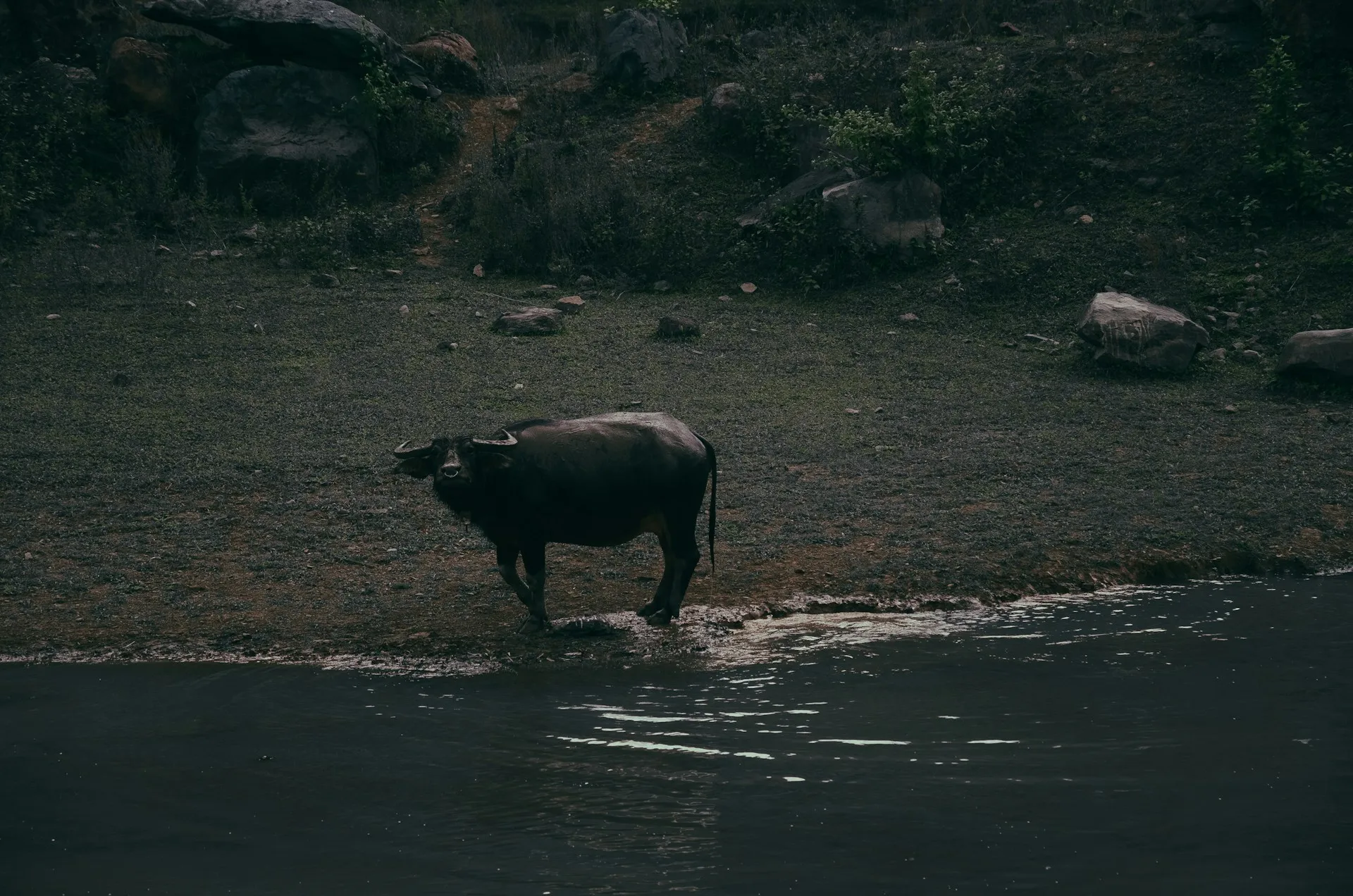Loss and heartbreak are universal experiences that often leave us feeling lost and overwhelmed. While the pain is undeniable, there are ways to navigate these storms and emerge stronger on the other side. Interestingly, the animal kingdom, specifically buffalos, offers a unique perspective on dealing with adversity.
The Buffalo’s Approach: Facing the Storm Head-On
When a storm approaches, buffalos don’t run away or hide. Instead, they instinctively gather and charge directly into the heart of the storm. This might seem counterintuitive, but there’s wisdom in their actions. By facing the storm head-on, they minimize their exposure to the harsh elements and pass through it more quickly.
Did You Know?
Buffalos have a strong social structure that allows them to support each other during challenging times. As they move towards the storm, they stay close, ensuring that no one faces the storm alone.
Applying the Buffalo’s Wisdom to Our Lives
While we’re not buffalos, we can apply their wisdom to our emotional storms. When grief or heartbreak hits, it’s natural to want to avoid the pain. We might try to numb ourselves, distract ourselves, or pretend everything is okay. However, like the storm, these emotions won’t simply disappear.
Facing Your Emotions Head-On: A Step-by-Step Guide
- Acknowledge Your Feelings: Recognize that it’s okay to feel pain, sadness, and anger.
- Seek Support: Talk to a trusted friend, family member, or therapist.
- Express Yourself: Write in a journal, create art, or allow yourself to cry.
- Stay Present: Focus on the here and now, and find small things to appreciate each day.
The Science Behind Facing Emotions
Research supports the idea that facing emotions is beneficial. Studies have shown that suppressing emotions can lead to increased stress, anxiety, and even physical health problems. Conversely, expressing emotions can help reduce stress, improve mood, and strengthen resilience.
Additional Tips for Coping with Grief and Heartbreak
- Practice Self-Care: Take care of your physical and emotional needs. Eat nutritious foods, get enough sleep, exercise regularly, and engage in activities that bring you joy.
- Be Patient: Healing takes time. Don’t rush the process or judge yourself for feeling a certain way.
- Focus on the Present: While it’s important to acknowledge your pain, try to focus on the present moment and find small things to be grateful for.
A Personal Reflection
As I write this, I find myself in the eye of the storm, a tempest of heartbreak that has upended the world as I knew it. The end of a long-term relationship has left me navigating a maelstrom of emotions, each one a poignant echo of a future that will never be.
In the thick of this storm, I’ve come to understand that it’s okay to not be okay. It’s okay to feel lost, to feel the raw edges of grief as they cut deep. It’s okay to stand amidst the chaos and admit that I am hurting, that I am scared, and that I am unsure of what comes next.
Inspired by the buffalo, who faces the storm head-on, I am learning to do the same with my grief. There is a strange comfort in knowing that the buffalo does not do this alone; it relies on the herd for strength. Similarly, I am learning to lean on the support of those around me, to share my pain rather than shouldering it in solitude.
It’s Okay to Be in the Storm
- Acceptance: Embracing the reality of my feelings as a natural response to loss.
- Support: Seeking comfort in friends, family, and community.
- Expression: Finding outlets for my emotions through writing, art, or conversation.
- Presence: Allowing myself to live in the moment, even if that moment is filled with pain.
This storm is fierce, and at times it feels unending. But there is a lesson here in the heart of the tempest: the only way out is through. And so, I press on, one step at a time, trusting that with each step, I am moving closer to calmer skies.
The journey is not easy, nor is it linear. There are moments of clarity followed by sudden downpours of sorrow. Yet, I hold onto the hope that, like the buffalo, I will emerge from this storm. Not unscathed, but perhaps wiser, more compassionate, and with a deeper appreciation for the quiet after the rain.
Remember, grief and heartbreak are not signs of weakness. They are natural responses to loss. By facing your emotions head-on, practicing self-care, and seeking support, you can navigate these storms and emerge stronger, wiser, and more resilient.
